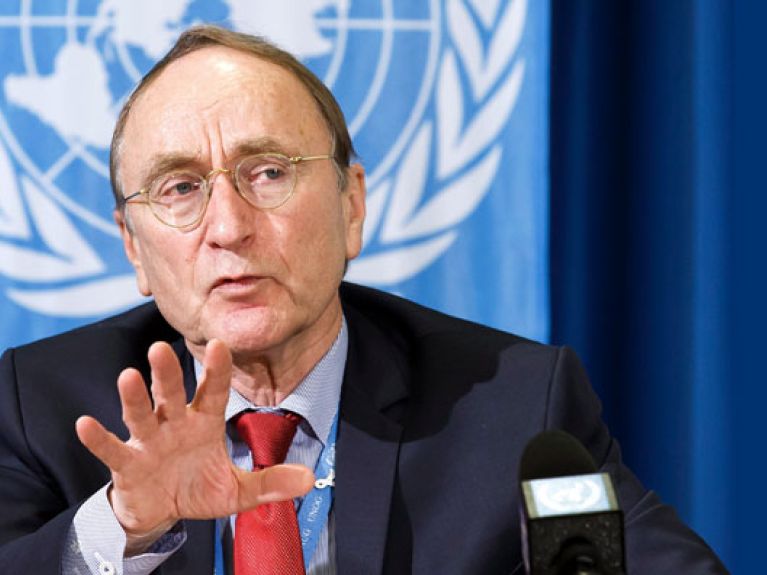Joachim Rücker to lead UN Human Rights Council
A German diplomat is to take over the Presidency of the United Nations Human Rights Council in 2015 for the first time.

“This is a unique privilege and a great honour for me and for my home country of Germany,” said Joachim Rücker, after the 47 representatives of the member states of the United Nations Human Rights Council had elected him as their new president. The diplomat, who has a PhD in economics, had passed through many important stages in his career since 1979 – from Vienna via Dar-es-Salaam to Detroit. Up until June 2008 he had worked as the UN’s Special Envoy in Kosovo, where he headed the transitional administration. After that he went to Sweden as Germany’s ambassador. Rücker’s most recent positions were as Chief Inspector of the Federal Foreign Office in Geneva, and finally as Ambassador and Permanent Representative of the Federal Republic of Germany to the Office of the United Nations and the other international organizations in Geneva. The 63-year-old is a special kind of diplomat, for he was also active as a politician for the Social Democratic Party of Germany (SPD). His eventful career shows that he has repeatedly managed to combine foreign policy with political engagement in his home country. For example, from 1993 to 2001 Rücker was mayor of the town of Sindelfingen in Baden-Württemberg.
Rücker wants to make the UN body’s work more effective
His one-year term at the helm of the UN Human Rights Council begins on 1 January 2015. The experienced diplomat will be taking on a delicate, new task, since the Council is well known for its difficult debates. “The tone of a debate – whether very aggressive or more respectful – varies from one presidency to the next,” said Peter Splinter, UN expert for the human rights organization Amnesty International, in an interview on the important role of the leadership. The presidency exerted a decisive influence on how the Council worked, what programmatic orientation it adopted, and how it conducted its debates.
After his election, Joachim Rücker announced his intention of encouraging the body to work more effectively. “The Council has already achieved a lot in the past almost ten years,” he said. “We must not forget that its work is of enormous importance to very many people in the world, particularly to the many victims of human rights violations and to the countless people who live in the midst of crises, conflicts and terror.”
© www.deutschland.de

